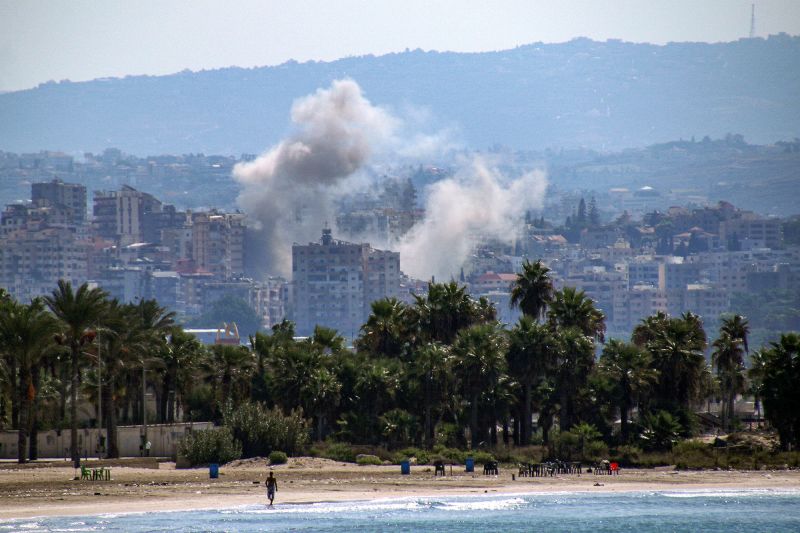Israel’s military chief told troops on Wednesday that its airstrikes in Lebanon were aiming to destroy Hezbollah’s infrastructure and to pave the way for a possible ground incursion by Israeli forces.
“You hear the jets overhead; we have been striking all day,” the head of Israel’s military, Herzi Halevi, told troops while visiting the country’s northern border with Lebanon.
“This is both to prepare the ground for your possible entry and to continue degrading Hezbollah.”
The goal of the incursion is to allow the tens of thousands of Israelis who have been displaced by cross-border fire in the north of the country to return to their homes, Halevi said.
“To achieve that, we are preparing the process of a maneuver,” he said. “It means your military boots, your maneuvering boots, will enter enemy territory, enter villages that Hezbollah has prepared as large military outposts.”
Entering into Lebanon “will show them what it means to face a professional, highly skilled and battle-experienced force,” Halevi said.
The comments come after Israel ramped up its airstrikes in Lebanon and shot down a missile that Hezbollah said it had aimed at the headquarters of Mossad, Israel’s intelligence agency, near Tel Aviv – the first time the Iran-backed militant group has tried to strike so deeply into Israeli territory.
Earlier, the Israel Defense Forces (IDF) said it was calling up two reserve brigades because of the conflict with Hezbollah. Israel’s top general in the north, Ori Gordin, had also warned the military “must be fully prepared for maneuvers.”
Israeli Prime Minister Benjamin Netanyahu said his country “will not rest” until the northern residents can return home.
“I cannot detail everything we are doing, but I can tell you one thing: we are determined to return our residents in the north safely to their homes,” the prime minister said, amid Israel’s intense wave of airstrikes on Hezbollah targets in Lebanon.
“We are inflicting blows on Hezbollah that [they] did not imagine. We do it with power, we do it with guile. I promise you one thing – we will not rest until they come home,” he added.
Israel has drastically stepped up its strikes on Hezbollah targets in Lebanon this month, as it begins to pivot away from its nearly year-long war against Hamas in Gaza.
Last week, Israel made returning residents to their homes in the north an explicit war aim. The next day, hundreds of pagers belonging to Hezbollah militants exploded across Lebanon. The day after, Hezbollah walkie-talkies also exploded. The twin attacks killed dozens and injured thousands.
Israel did not say it was behind the attacks, but did claim responsibility for an airstrike on southern Beirut the next day, which killed the leader of Hezbollah’s elite Radwan Force, Ibrahim Aqil. This week, another airstrike on Beirut killed Ibrahim Qubaisi, a senior official who commanded Hezbollah’s missile units.
Reeling from the biggest-ever hits to its military structure, Hezbollah began to respond, firing hundreds of missiles into Israel over the past week, but Israel’s unrelenting escalations appear to have put the group on the back foot.
“You are coming in much stronger and far more experienced than they are,” Halevi told troops Wednesday. “You will go in, destroy the enemy there, and decisively destroy their infrastructure. These are the things that will allow us to safely return the residents of the north afterward.”

